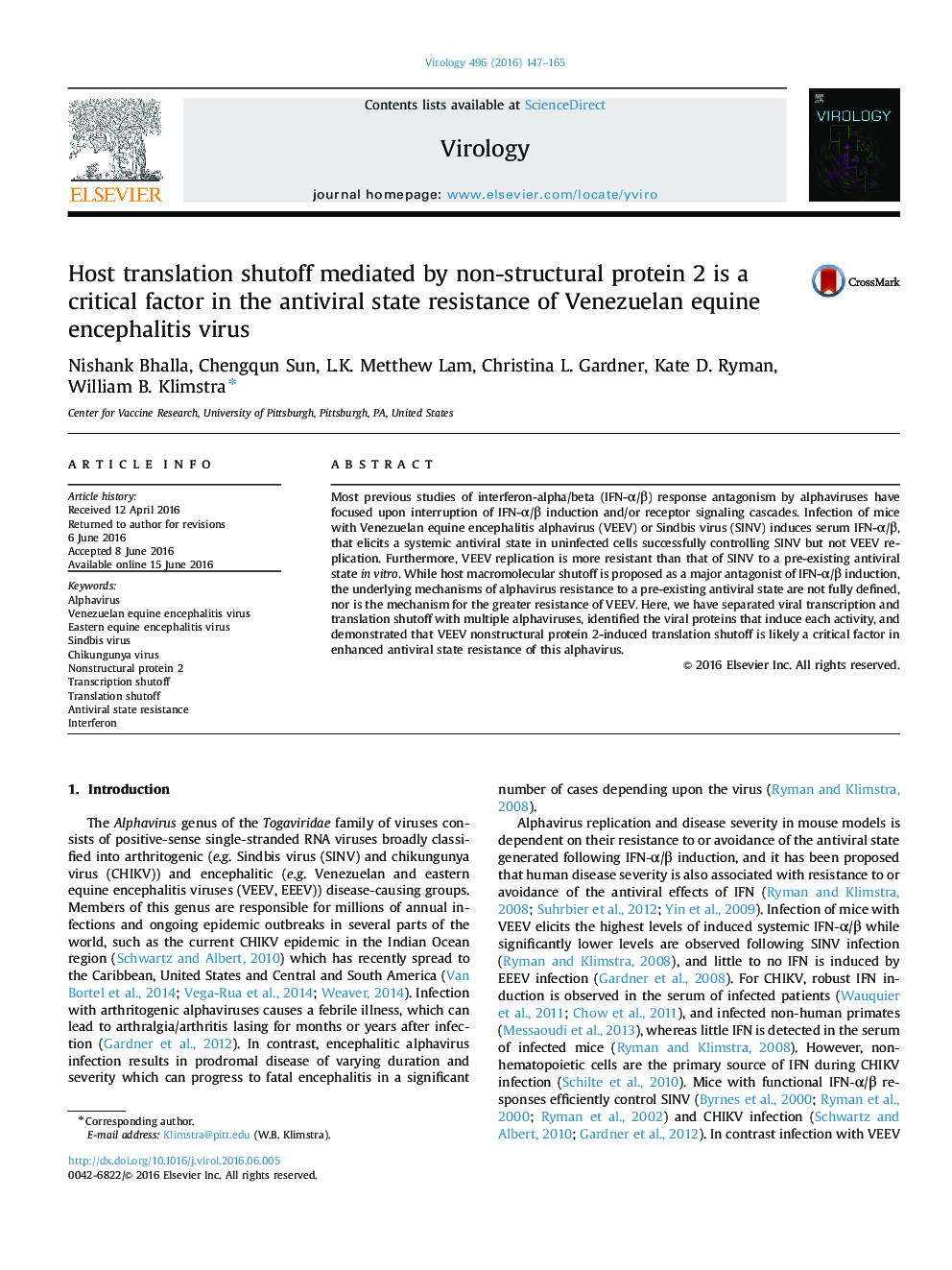| Article ID | Journal | Published Year | Pages | File Type |
|---|---|---|---|---|
| 6138698 | Virology | 2016 | 19 Pages |
â¢VEEV is the alphavirus most resistant to the IFN-induced antiviral state.â¢Transcription and translation shutoff are independently mediated viral activities.â¢VEEV nsP2 shuts off host translation but not transcription.â¢VEEV nsP2, but not SINV nsP2, shuts of host translation in IFN-primed cells.â¢NsP2-mediated translation shutoff is critical for the resistance phenotype of VEEV.
Most previous studies of interferon-alpha/beta (IFN-α/β) response antagonism by alphaviruses have focused upon interruption of IFN-α/β induction and/or receptor signaling cascades. Infection of mice with Venezuelan equine encephalitis alphavirus (VEEV) or Sindbis virus (SINV) induces serum IFN-α/β, that elicits a systemic antiviral state in uninfected cells successfully controlling SINV but not VEEV replication. Furthermore, VEEV replication is more resistant than that of SINV to a pre-existing antiviral state in vitro. While host macromolecular shutoff is proposed as a major antagonist of IFN-α/β induction, the underlying mechanisms of alphavirus resistance to a pre-existing antiviral state are not fully defined, nor is the mechanism for the greater resistance of VEEV. Here, we have separated viral transcription and translation shutoff with multiple alphaviruses, identified the viral proteins that induce each activity, and demonstrated that VEEV nonstructural protein 2-induced translation shutoff is likely a critical factor in enhanced antiviral state resistance of this alphavirus.
